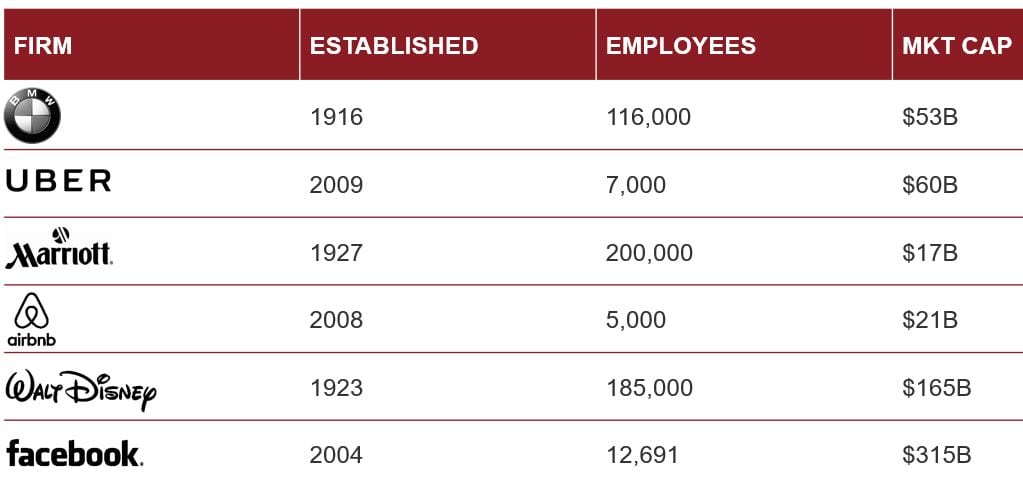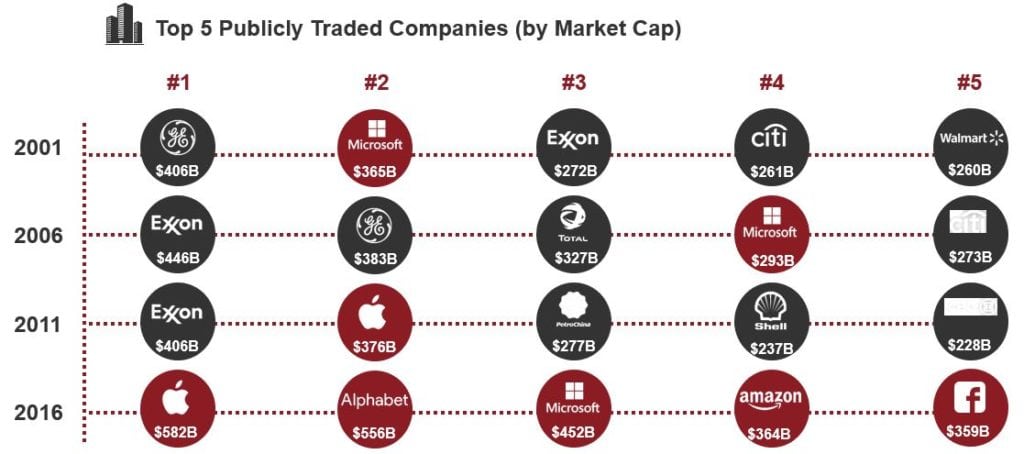Uber, the world’s largest taxi company, owns no vehicles. Facebook, the world’s most popular media owner, creates no content. Alibaba, the most valuable retailer, has no inventory. And Airbnb, the world’s largest accommodation provider, owns no real estate.
Something interesting is happening.
Something interesting is definitely happening, and that statement is now over three years old. I’ve used it for a while, but it’s evolved, particularly as I heard Geoffrey Parker, co-author of
The Platform Revolution, speaking. He had one slide which I’ve always used ever since.

Related:
Financial Institutions Aren’t Prepared for the Digital RevolutionAnd when I talk about this slide and another that shows the valuation of these companies.

I realised that we are clearly seeing the difference between an industrial-era company and
a digital-era company. An industrial-era company made everything, controlled everything and distributed everything; a digital-era company makes nothing, controls nothing and distributes nothing … but they connect everything.
That is the critical point:
Digital companies make nothing but connect everything; industrial companies make everything and connect nothing.This clearly delineates the industrial age firms from those for the digital age. In fact, someone asked me to define digital transformation the other day and my reply was:Most companies were born in the industrial age and are trying to evolve to be digital. However, the truly digital companies were born on the internet. For industrial-era companies to transform to be truly digital, they have to completely transform their business to have its core foundation built on the internet. Businesses cannot evolve to be digital, as such strategies leave the core foundations to be firmly industrial.
 Related: Financial Institutions Aren’t Prepared for the Digital RevolutionAnd when I talk about this slide and another that shows the valuation of these companies.
Related: Financial Institutions Aren’t Prepared for the Digital RevolutionAnd when I talk about this slide and another that shows the valuation of these companies.  I realised that we are clearly seeing the difference between an industrial-era company and a digital-era company. An industrial-era company made everything, controlled everything and distributed everything; a digital-era company makes nothing, controls nothing and distributes nothing … but they connect everything.
I realised that we are clearly seeing the difference between an industrial-era company and a digital-era company. An industrial-era company made everything, controlled everything and distributed everything; a digital-era company makes nothing, controls nothing and distributes nothing … but they connect everything.

